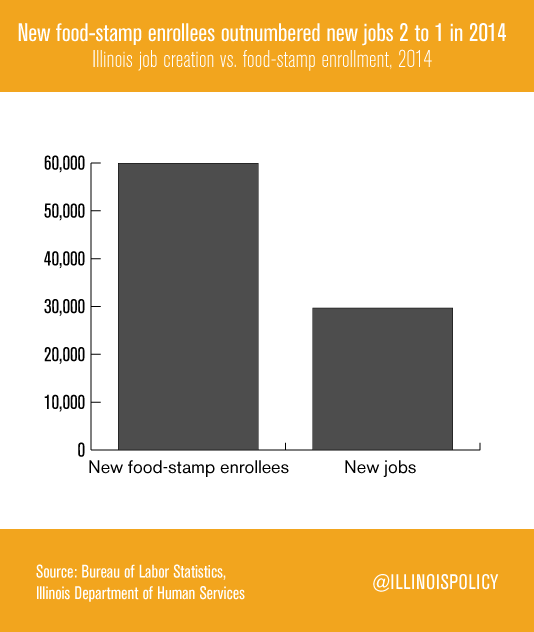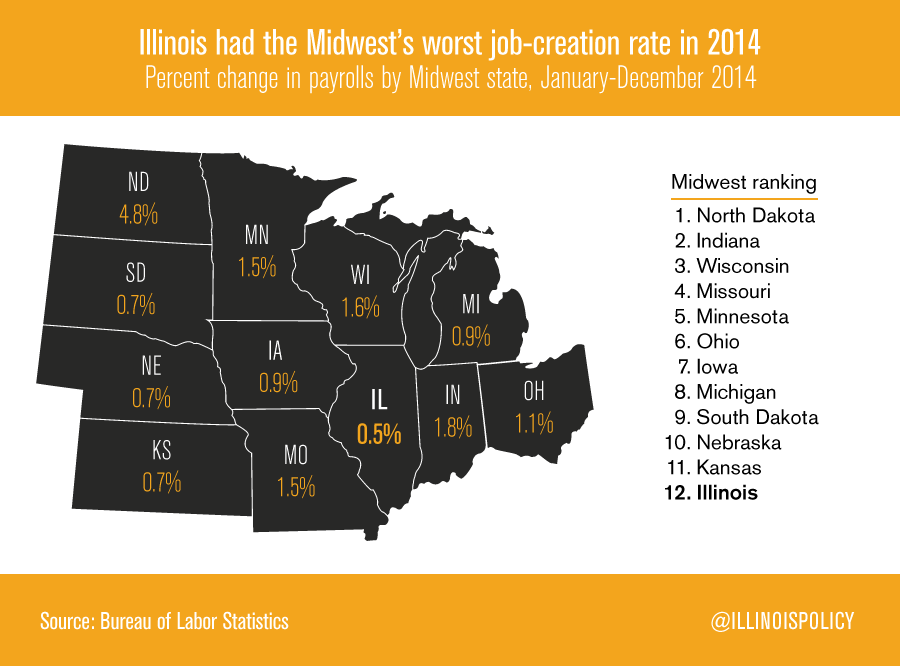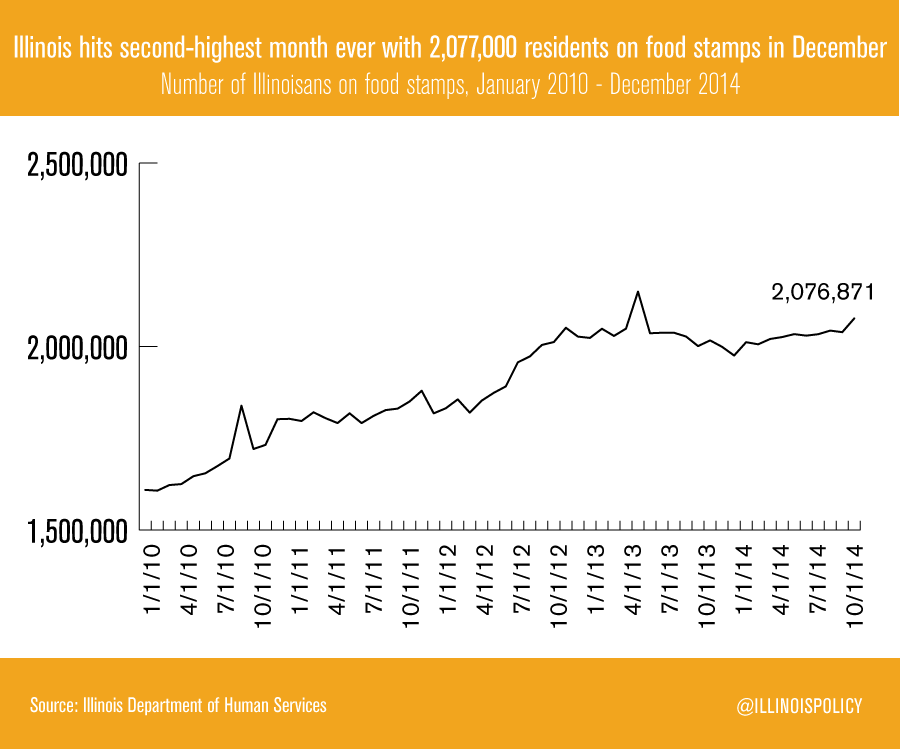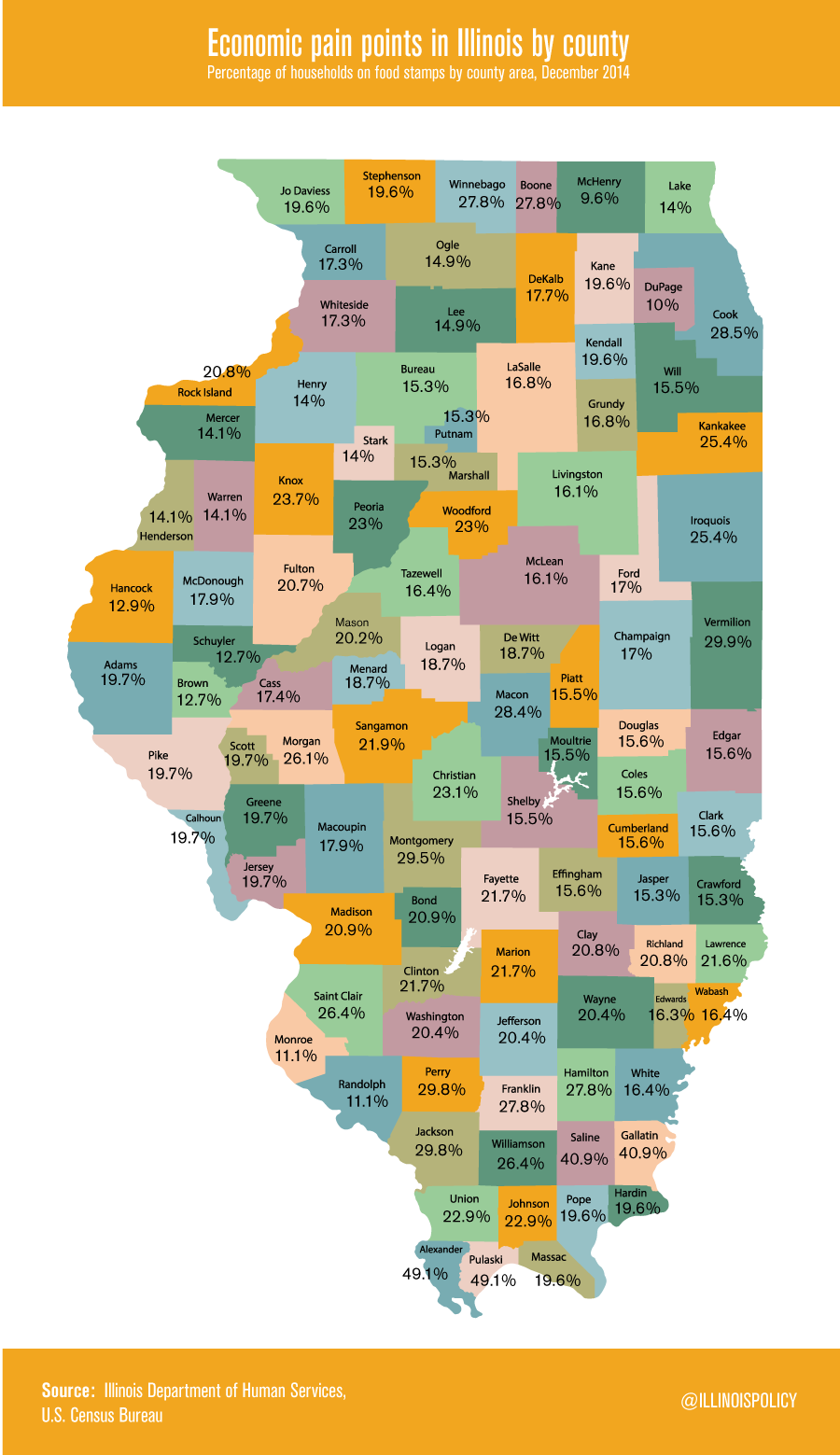State of desperation: Illinois food-stamp use spikes to new all-time high
Illinois’ decades-long experiments with progressive economic policies have thwarted human potential and forced dependency on a massive scale.
The number of Illinois households enrolled in the Supplemental Nutrition Assistance Program, commonly known as food stamps, spiked by 20,000 in December, hitting a new all-time high of 1,073,279 households, according to the Department of Human Services. The total number of Illinoisans on food stamps jumped by 37,500 in December, further revealing the state’s desperate economic conditions.
In 2014, an additional 60,000 Illinoisans were added to the food-stamp rolls against a mere 27,600 new jobs created in the state.
This comparison reflects Illinois’ poor job-creation performance. The state’s job-creation rate ranked last in the Midwest in 2014.
A record 22.4 percent of Illinois households are now on food stamps. Clearly, Illinois’ economy cannot take care of the most vulnerable people in the state.
The total number of individuals receiving food stamps hit a 2014 high in December at 2,076,871, the second-highest monthly count in state history.
Nearly every Illinois county saw an increase in the number of households on food stamps from November to December. LaSalle County, Hancock County and Schuyler County are the only counties to show fewer households on food stamps. Illinois’ food stamp crisis is especially pronounced in municipal counties and downstate.
Illinois’ decades-long experiments with progressive economic policies have thwarted human potential and forced dependency on a massive scale. With a new record food-stamp count and a record loss of residents due to out-migration in 2014, the need for economic reform is overwhelming.
There are a number of levers to pull to fix the state economy. Major regulatory costs, such as unemployment insurance and workers’ compensation, are making Illinois uncompetitive and need to be overhauled.
Illinois needs a statewide agenda for entrepreneurship to foster business formation and allow Illinoisans to pull themselves out of poverty through entrepreneurial success.
Finally, Illinois’ localities and municipalities don’t need to wait for Springfield. They can embrace local reforms to grow the shared economy, lighten the regulatory burden and create a hospitable environment for job creation.





